2025 Keynote Speakers

Yuanbing Mao
Illinois Institute of Technology, USA
Biography: Dr. Yuanbing Mao is a Professor and the Chair of the Department of Chemistry at Illinois Institute of Technology. He received his B.Sc. degree from Xiangtan University, M.Sc. degree from the Institute of Chemistry, Chinese Academy of Sciences, and Ph.D. degree from the State University of New York at Stony Brook. He then finished his postdoc training at the University of California at Los Angeles. His research interests include nanomaterials, solid-state science, and nanoscience with expertise in optoelectronics, energy storage and conversion, and environmental remediation. As of today, he has published over 200 peer-reviewed journal articles with 10,000+ citations, two edited books, four book chapters, and a few patents. He has earned several awards, including the Department of Defense Young Investigator Award and the Outstanding Mentorship Award from the Council on Undergraduate Research, and was a recipient of the Department of Energy Visiting Faculty Program.

Tan Kiang Hwee
National University of Singapore
Biography: Prof TAN KIANG HWEE is Emeritus
Professor in the Department of Civil and Environmental Engineering at the
National University of Singapore (NUS), where he has worked since July 1981. He
obtained his doctorate degree from the University of Tokyo, Japan in 1985. He
specialises in the area of structural concrete and composites and has carried
out extensive research on external prestressing, fibre-reinforced polymer (FRP)
reinforcement, fibre-reinforced concrete, and sustainable concrete and
construction. He has published more than 300 refereed technical papers, a book
entitled “Beams with Openings: Analysis & Design” (CRC Press LLC, USA, 1999),
“Design Guide for Fibre-Reinforced Concrete Structures to Singapore Standard SS
674:2021” (Association of Consulting Engineers Singapore, 2021), and edited the
proceedings of the 6th International Symposium on FRP Reinforcement for Concrete
Structures (World Scientific, 2003). He was awarded the Frederick Palmer Prize
2021, by the Institution of Civil Engineers (ICE), UK.
Prof Tan is a Fellow of the Institution of Engineers, Singapore (IES), Japan
Concrete Institute (JCI) and Japan Society of Civil Engineers (JSCE). He is a
member of editorial boards for numerous international journals, including ASCE
Journal of Composites for Construction, JCI Journal of Advanced Concrete
Technology, and others. He is a registered professional engineer and has also
been a consultant in structural engineering for several agencies in Singapore
and the region. Currently, Professor Tan is the Chairman for Singapore Standards
Council’s Technical Committee on Structures and Sub-Structures, and a member of
the Investigation Panel for Professional Engineers Board, Singapore.
2024 Keynote Speakers
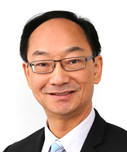
William C. Tang (FInstP, FAIMBE)
University of California, Irvine, USA
William C. Tang received his BS (1980), MS (1982), and PhD (1990) degrees in Electrical Engineering and Computer Sciences from the University of California at Berkeley. His seminal thesis and invention of the electrostatic comb drive has been internationally recognized as one of the key building blocks of Micro-electromechanical Systems (MEMS) sensors and actuators, and is the most widely-cited work in the field for over two decades. Since his graduation, Dr. Tang contributed to the automotive industry at Ford Motor Company and space exploration at the Jet Propulsion Laboratory. Subsequently, he served as the DARPA Program Manager for various MEMS programs, the single largest federal funding source for MEMS at the time. In 2002, he was appointed a Professor of Biomedical Engineering and Electrical Engineering & Computer Science at the University of California, Irvine. Later, he was also jointly appointed with the Chemical and Biomolecular Engineering and the Materials Science and Engineering Departments. He was the first Associate Dean for Research in the Henry Samueli School of Engineering from 2008 to 2013. His research interests include micro- and nano-scale biomedical engineering, neural engineering, neuropathology and clinical applications. He is a Senior Member of the Institute of Electrical and Electronics Engineers, a Fellow and Chartered Physicist with the Institute of Physics, and a Fellow of the American Institute for Medical and Biological Engineering.
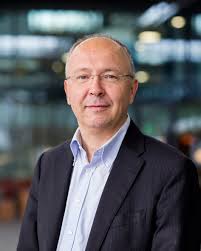
Jos Brouwers
Eindhoven University of Technology, Netherlands
Jos Brouwers is a Full Professor and Chair of
Building Materials at Eindhoven University of Technology (TU/e). He obtained his
MSc in Mechanical Engineering and his PhD in Technical Sciences at TU/e. He has
worked as Research engineer and project leader in the Department of Mechanical
Engineering at Akzo Nobel Central Research and Associate professor in the
Department of Civil Engineering (& Management) at Twente University of
Technology, The Netherlands.
Jos is currently guest professor in the State Key Lab of Silicate Building
Materials, at Wuhan University Technology, China, where he focuses on
Construction Materials and Sustainable Building. In addition, he is an editorial
board member of Vestnik, a peer-reviewed journal published by the Moscow State
University of Civil Engineering, and a Member of the Consultative Board of Van
Berlo Bedrijfsvloeren. Furthermore, Jos is a reviewer of project proposals for
IWT (Swiss Institute for Materials Technology) and SNF (Dutch foundation for
flexible housing standards). His current research interests include Sustainable
building (materials, energy, water), Granular mix design and concrete/mortar
rheology (Self-Compacting Concrete, soil grouts, earth moist concrete, fiber
reinforced concrete, oil well cement etc), Microstructure and pore water
chemistry of hydrating cement/lime/gypsum and cementitious by-products (slag,
fly ash etc.), and their dehydration (e.g. fire response), Treatment of
contaminated soils, dredged sediments, industrial waste etc, with the help of
air/steam (cleaning) and by mixing with cement/lime/gypsum
(immobilization/stabilization), Transport properties and durability of
cement/lime/gypsum based materials (such as Cl- and CO2 diffusion/binding),
Functional materials: self-cleaning, air-purifying, translucent, thermally
buffering, etc.
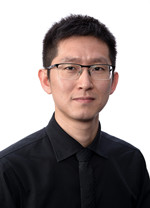
Guoqing Geng
National University of Singapore, Singapore
Dr. Geng Guoqing received his Bachelor degree in
Southeast University (China) in 2010, his Master and Doctoral degree in CEE at
UC Berkeley (USA) in 2013 and 2017, respectively. His PhD program was dedicated
to investigating the microscale chemistry and mineralogy of modern construction
materials. He was then awarded a postdoctoral fellowship in Paul Scherrer
Institute (Switzerland), where he studied the durability of concrete both as a
construction material and hosting material for radioactive waste.
Dr. Geng has research interests in sustainability and performance based
innovation of modern construction materials. His research involves the usage of
multi-scale mineral/chemical/material characterization methods and modeling
tools. He has authored/co-authored over 50 journal publications in the field of
cement and concrete research. He is the PI or Co-PI of several active research
projects sponsored by Minster of Education, Singapore Energy Center, DSTA, BCA
and NRF.
Dr. Geng is currently the East Asian Regional Convener for RILEM, board member
of ACI-Singapore Chapter, and of Singapore Concrete Institute. He serves as the
editor for several international journals.
2023 Keynote Speakers
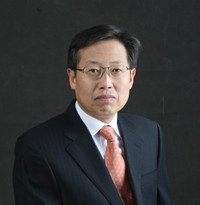
Prof. Soon Hyung Hong
Fellow of National Academy of Engineering of Korea
Fellow of Korean Academy of Science
and Technology
Korean Advanced Institute of Science and Technology (KAIST), Korea
Prof. Hong completed his Ph.D. in Dept. of
Materials Science and Engineering at Northwestern University in 1984. After R&D
experience at Stanford University as a research associate, he joined Korea
Advanced Institute of Science and Technology (KAIST) as a professor in 1986,
where he is directing research and education on design, fabrication processes
and applications of composites and nanocomposites. Prof. Hong pioneered to
develop global leading technologies for fabrication processes and applications
of nanomaterials filled multi-functional nanocomposites. Prof. Hong has
published 263 international journal papers, registered or filed 158 patents,
delivered 72 keynote or invited talks mainly in areas of nanomaterials and
nanocomposites.
Prof. Hong had served as a Managing Director of the Office of Strategic R&D
Planning (OSP) in the Ministry of Knowledge Economy (MKE), Director for Basic
Science and Engineering in National Research Foundation (NRF) of Korea,
Presidents of the Korea Society for Composite Materials (KSCM) and the Korean
Powder Metallurgy Institute (KPMI). He currently is acting as the President of
SAMPE Korea and the Vice President of the Korean Academy of Science and
Technology (KAST).
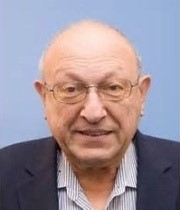
Prof. Ephraim Suhir
Fellow of IEEE, ASME, SPIE
Portland State University, USA
Ephraim Suhir is on the faculty of the Portland State University, Portland, OR, USA, and is CEO of a Small Business Innovative Research (SBIR) ERS Co. in Los Altos, CA, USA. Was born in Odessa, Ukraine. Naturalized US citizen (since1985). He is Foreign Full Member of the National Academy of Engineering, Ukraine (he was born in that country); Life Fellow of the Institute of Electrical and Electronics Engineers (IEEE), the American Society of Mechanical Engineers (ASME), the Society of Optical Engineers (SPIE), and the International Microelectronics and Packaging Society (IMAPS); Fellow of the American Physical Society (APS), the Institute of Physics (IoP), UK, and the Society of Plastics Engineers (SPE); and Associate Fellow of the American Institute of Aeronautics and Astronautics (AIAA). Ephraim has authored 500+ publications (patents, technical papers, book chapters, books), presented numerous plenary, keynote, invited and contributed talks worldwide, and received many professional awards, including 1996 Bell Labs. Distinguished Member of Technical Staff (DMTS) Award (for developing effective methods for predicting the reliability of complex structures used in AT&T and Lucent Technologies products), and 2004 ASME Worcester Read Warner Medal (for outstanding contributions to the permanent literature of engineering and laying the foundation of a new discipline “Structural Analysis of Electronic Systems”). Ephraim is the third “Russian American”, after S. Timoshenko and I. Sikorsky, who received this prestigious award. His most recent awards are 2019 IEEE Electronic Packaging Society (EPS) Field award (for seminal contributions to mechanical reliability engineering and modeling of electronic and photonic packages and systems), 2019 IMAPS Lifetime Achievement award (for making exceptional, visible, and sustained impact on the microelectronics packaging industry and technology) and 2022 IEEE SCV Section Outstanding Engineer award (for seminal contributions to several critical IEEE fields, including probabilistic design-for-reliability of microelectronic and photonic materials, devices and systems, and the role of the human factor).
2022 Keynote Speakers

Prof. William C. Tang (FInstP, FAIMBE)
University of California, Irvine, USA
William C. Tang received his BS (1980), MS (1982), and PhD (1990) degrees in Electrical Engineering and Computer Sciences from the University of California at Berkeley. His seminal thesis and invention of the electrostatic comb drive has been internationally recognized as one of the key building blocks of Micro-electromechanical Systems (MEMS) sensors and actuators, and is the most widely-cited work in the field for over two decades. Since his graduation, Dr. Tang contributed to the automotive industry at Ford Motor Company and space exploration at the Jet Propulsion Laboratory. Subsequently, he served as the DARPA Program Manager for various MEMS programs, the single largest federal funding source for MEMS at the time. In 2002, he was appointed a Professor of Biomedical Engineering and Electrical Engineering & Computer Science at the University of California, Irvine. Later, he was also jointly appointed with the Chemical and Biomolecular Engineering and the Materials Science and Engineering Departments. He was the first Associate Dean for Research in the Henry Samueli School of Engineering from 2008 to 2013. His research interests include micro- and nano-scale biomedical engineering, neural engineering, neuropathology and clinical applications. He is a Senior Member of the Institute of Electrical and Electronics Engineers, a Fellow and Chartered Physicist with the Institute of Physics, and a Fellow of the American Institute for Medical and Biological Engineering.
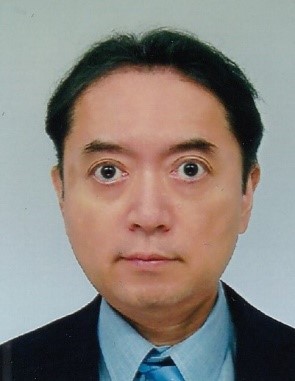
Prof. Hideaki Tsukamoto
Hosei University, Japan
Prof. Hideaki Tsukamoto is currently a full
Professor in Department of Mechanical Engineering, Faculty of Science and
Engineering, Hosei University, Japan. Prof. Tsukamoto received his bachelor’s
degree in metallurgical engineering from Tokyo Institute of Technology, Japan in
1988, and his master’s degree in Materials Science from Tokyo Institute of
Technology, Japan in 1990. He received his PhD in Materials Science from Tokyo
Institute of Technology, Japan in 2002, and another PhD in Mechanical
Engineering from The University of Adelaide, Australia in 2008. He was working
as an assistant professor at Tokyo Institute of Technology, Japan from 1990 to
2003. He moved to Australia in 2005 and was working at The University of
Queensland from 2008 to 2011. Since 2016, he has been working as a full
professor at Hosei University, Japan. His research targets and interests include
metal matrix composites (MMCs), ceramic matrix composites (CMCs), functionally
graded materials (FGMs), high temperature materials, and their thermo-mechanical
behavior. He has been also engaging in micromechanics of the composites.
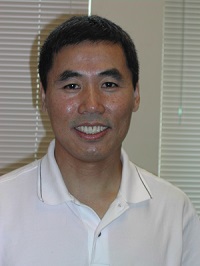
Prof. Qingsong Yu
University of Missouri, USA
Dr. Qingsong Yu is a Full Professor in the
Department of Mechanical and Aerospace Engineering at University of Missouri in
the United States. Dr. Yu’s research has been focusing on non-thermal gas plasma
technology and its applications in materials processing, surface modification,
thin film deposition, and recently in plasma medicine and plasma dentistry.
Dr. Yu received his B.S. in Chemical Engineering from Tianjin University of
China, and his M.S. and Ph.D. in Chemical Engineering from University of
Missouri (1995, 1998). Since then, Dr. Yu has worked in microelectronics
industry at Silicon Valley in California. In 2002, he joined the faculty in the
Department of Chemical Engineering at University of Missouri and now he is a
Professor in the Department of Mechanical and Aerospace Engineering at
University of Missouri. Dr. Yu has published over 100 refereed research papers
in major international journals and holds a few US patents.
The cookie settings on this website are set to "allow cookies" to give you the best browsing experience possible. If you continue to use this website without changing your cookie settings or you click "Accept" below then you are consenting to this.




